Tag Archives | Fecal Sludge Management
Governance and public sector management, Health, Urban development, Water
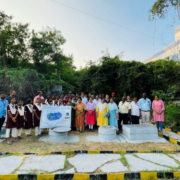 Sanitation, Water
Sanitation, Water
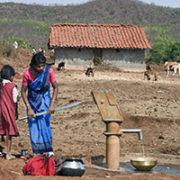 Education, Population, Sanitation
Education, Population, Sanitation
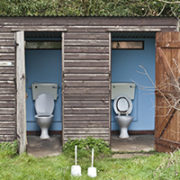 Environment, Water
Environment, Water
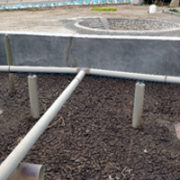 Environment
Environment
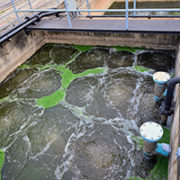
Sanitation tours demonstrate successful sanitation in South Asia

Safe sanitation for all is essential for improving public health, providing a clean environment, and breaking cycles of disease.
No matter how poor you are, there is always a way to improve sanitation

The “out of sight, out of mind” attitude is proving to be critical for the slow progress toward target 6.2 of the Sustainable Development Goals (SDGs), focusing on global, safely managed sanitation. There is a general lack of awareness among users on the whereabouts of their poop, and the discussion on wastewater management is scarce and still a taboo topic in many parts of the world, leading to a lack of safely managed sanitation services. Besides the lack of demand hampering progress, the supply side of wastewater management is equally grim.
“Theory of change” as a solution to the global sanitation crisis

The most exciting part of my journey here at the Asian Development Bank Institute is that I get to meet inspiring leaders who have contributed immensely to helping solve the pressing challenges related to sustainable development. This time it was an interaction opportunity with the world-renowned “Mr. Toilet”, i.e., Mr. Jack Sim. If it were not for the efforts of Mr. Toilet and the World Toilet Organization (WTO), the United Nations would not have recognized 19 November as World Toilet Day, an effort by the global agency to mainstream the discussion on wastewater.
“Commitment” as a success factor for fecal sludge management

Leh, a high-altitude cold desert in India, is a popular tourist destination hosting around 250,000 visitors annually. At present, the poorly designed septic tanks and soak pits installed by households, hotels, and guesthouses to contain fecal sludge are posing a serious threat to groundwater contamination. To cater to the demand for fecal sludge management (FSM), the Municipal Committee of Leh (MCL) partnered with a private company called Blue Water Company (BWC) and a technical nongovernment organization named BORDA in 2017 to provide an end-to-end FSM service, including pit emptying and operation of a sludge treatment plant.
Minimizing the Cost of Fecal Sludge Management through Co-Treatment

The City Development Initiative for Asia, the Asian Development Bank, other multilateral agencies, and national governments are funding sewerage systems for medium and large cities throughout Asia. Even at “full” sewerage coverage, cities often find that some, if not many, buildings are still reliant on septic tanks, pits, or other onsite systems. For cities with or that are planning sewerage systems, co-treatment may enable citywide sanitation by minimizing the need for standalone fecal sludge treatment plants.


Search
Subscribe / Connect to Asia Pathways
Subjects
- Accelerating Progress in Gender Equality
- Addressing Remaining Poverty and Reducing Inequality
- Agriculture and natural resources
- Capacity development
- Climate change
- Economics
- Education
- Energy
- Environment
- Finance and Innovation
- Finance sector development
- Gender
- Globalization and Economic Stability
- Governance and public sector management
- Health
- Industry and trade
- Information and Communications Technology
- Infrastructure
- Making Cities More Livable
- Miscellaneous
- Population
- Poverty
- Private sector development
- Regional cooperation and integration
- Sanitation
- Social development and protection
- Strengthening Governance and Institutional Capacity
- Subjects
- Transport
- Uncategorized
- Urban development
- Video Blog
- Water
Recent Posts
- From Crisis to Resilience: The Evolution of the Banking Sector in Asia and the Pacific
- Tariffs on the Table: What Could Be Asia’s Next Move?
- Investing in Childcare a Win for Women and the Economy
- Flush and Flourish: Upgraded Toilets Can Transform Lives in Rural Asia
- New Ways for Climate Finance and Development in Asia and the Pacific




Recent Comments